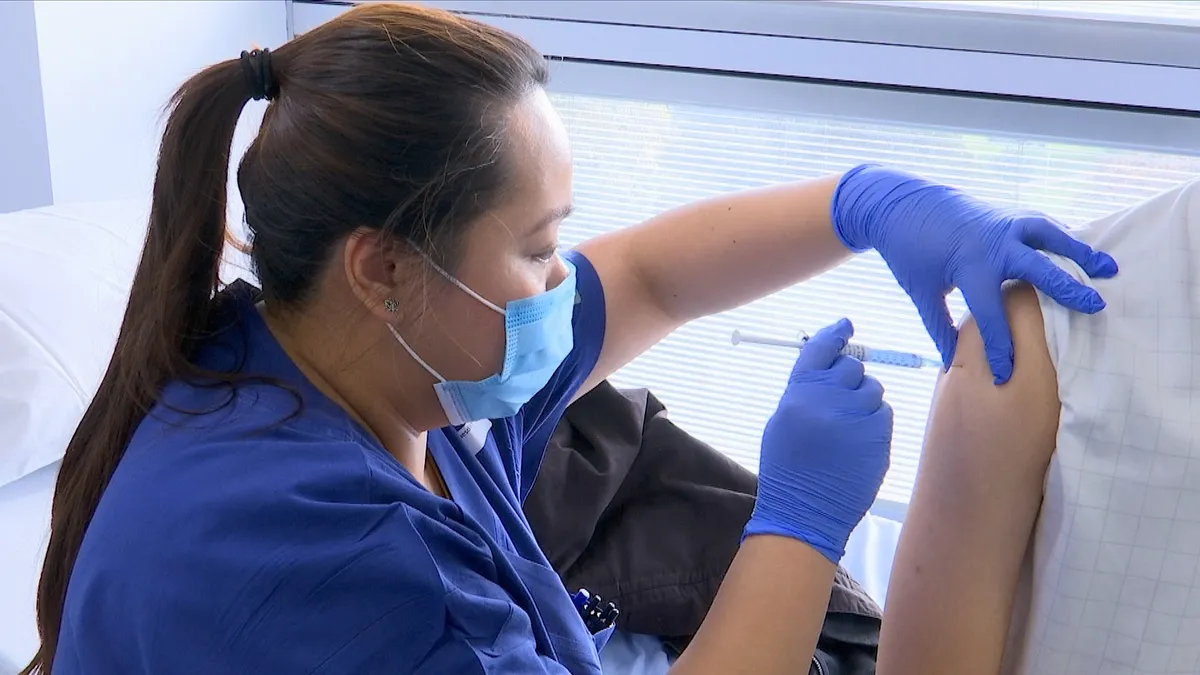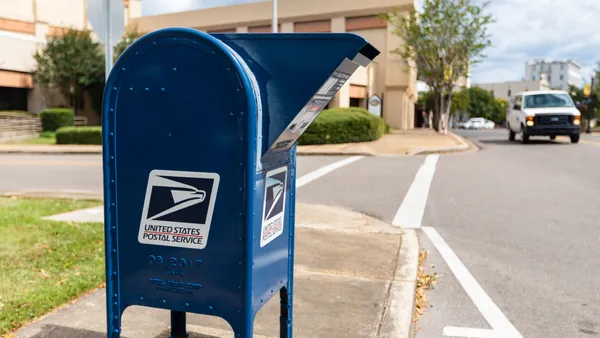As the vaccine rollout continues, transport executives must consider several factors in their employer policies, related to mandates, incentives, state regulations, employee communication and more. Have a question about the coronavirus vaccine? Send it here, and it may be answered in a future article.
Can I require my drivers to get vaccinated?
The short answer to the question is, "yes, but," said David Ritter, partner at the law firm Barnes & Thornburg.
Employers can require their at-will drivers on the payrolls to get vaccinated against COVID-19, just as they can require mask wearing, temperature checks, health questionnaires and other policies aimed at keeping the workforce safe.
There are two main "buts" to mandated vaccine policies, Ritter said.
- Disabilities: Employers must provide reasonable accommodations for employees with disabilities, as specified in the Americans with Disabilities Act. What does "accommodation" look like for drivers who cannot take the vaccine but continue to work? Transport leaders can work with shippers to ensure the drivers stay in their trucks at a shipper or receiver facility, so they don't interact with others.
- Religious beliefs: Workers and drivers can also refuse the vaccine because of sincerely held religious beliefs, as outlined under the U.S. Equal Employment Opportunity Commission's Section 12.
The situation is different if drivers are unionized, said Robert Roginson, chair of the trucking and logistics industry group at Ogletree Deakins.
The trucking firm would have to bargain with the labor union before creating and implementing mandatory vaccines, unless the bargaining agreement with the union allows the transport firm to do so unilaterally.
Can I tell my owner-operators or contracted fleets' drivers to get the vaccine?
A trucking firm cannot mandate a vaccine policy for owner-operators, but it can encourage vaccination through the business relationship the two companies have.
Ritter recommended a trucking firm ask its owner-operators up front what their plans are in regards to vaccination and stress the preference that anyone working with the firm be vaccinated.
"What you're saying to them is, 'We have a business relationship. And this is important to our business relationship. So, we strongly suggest that you do this,'" Ritter said.
What if my drivers say no, they don't want the vaccine?
Legally, an employer can put an employee on temporary leave without pay or even discharge an employee, if policy mandates a vaccine and an employee refuses to take it — and doesn't fall under the disability or religious exceptions listed above.
The employer can also restrict the driver from operating the truck, if he or she isn't entitled to one of the accommodations or if "such an accommodation constitutes an undue burden," Roginson said.
In these situations, however, Ritter advised taking a practical approach rather than one that goes by the letter of the law.
"We can't force anyone to take a vaccine," he said. "We can give them encouragement. We can tell them what the consequences are. Would I fire someone for not taking the vaccine? No, I would not."
Sending several drivers home at a time when capacity is already tight and drivers are in short supply may not be advantageous to the fleet.
"If a lot of them don't want to take the vaccine, and you say, 'OK, you're all on leave without pay,' are you going to have enough people to work?" Ritter said.
Should I require my drivers to get vaccinated?
This question doesn't have as concrete an answer and is a decision unique to each company with several pros and cons. And even if firms land on a mandatory policy, there are several execution-related issues to consider, including availability of vaccines and appointments, plus the variable nature of drivers' schedules.
"Few truckers know precisely where they will be from week to week, making it difficult to return home for shots and often impossible to predict where they may be located when it’s time for a second booster," OOIDA wrote in a letter to the Centers for Disease Control and Prevention, requesting easy vaccine access for drivers on the road, such as at a truck stop clinic or rest area.
Gigi Acevedo-Parker, national practice leader of clinical risk management at HUB International, said the first step in building a vaccination policy is to survey workers. Become aware of employees' level of understanding and any concerns about the vaccine, she said.
Roginson suggested a few factors to consider as a trucking company makes the decision on vaccination policy, including:
- What would be the effect on employee morale of mandating the vaccine?
- Would you be willing to discipline or discharge a driver who refuses the vaccine?
- If you discharge drivers for refusing the vaccine, do you have enough staff to haul loads? Can you easily hire replacements?
- Is your firm prepared to manage accommodation requests and handle the administrative work of maintaining a policy?
Companies can also consider their drivers' sentiment related to the vaccine, when deciding on a policy. A survey by Morning Consult found workers in several essential sectors, including transportation, have below-average willingness to take the coronavirus vaccine. Among all employed adults, 56% said they would get the COVID-19 vaccine, but that figure was 50% for transportation workers.
A mandate may be viewed as coercive and undermine trust in a company, according to Acevedo-Parker.
At the same time, without a mandated vaccine policy, transport leaders run the risk that many of their staff may choose not to receive the vaccine and could expose themselves and others to the virus.
"It just makes sense for the whole supply chain to know that the people transporting the goods are vaccinated," Ritter said.












